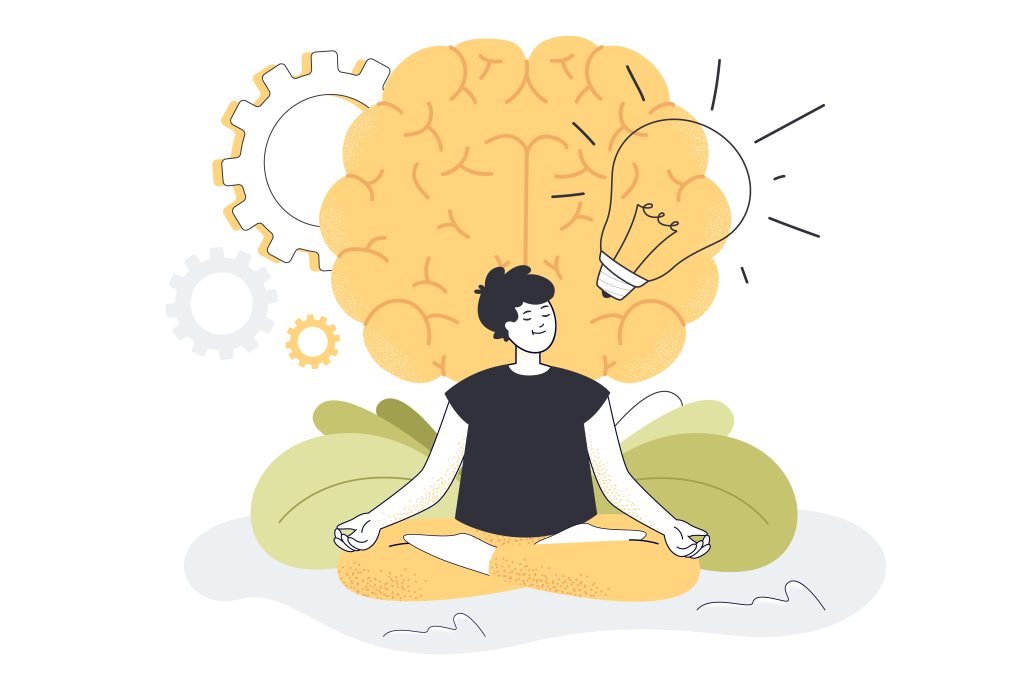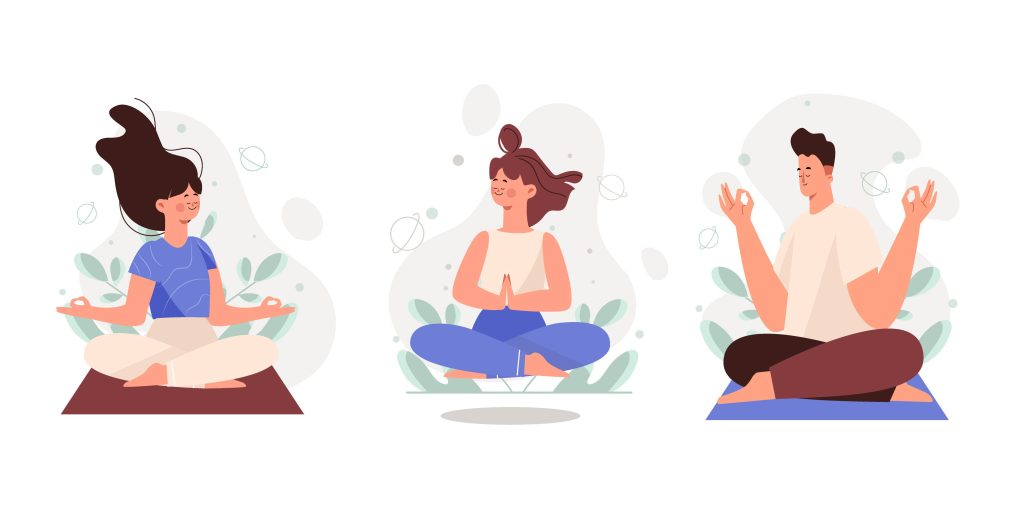
What is mindfulness meditation?
Mindfulness is a beautiful practice that helps us become rooted in life. It involves getting our minds back to the present and paying attention to the life that is unfolding right now within and around us.
If you are looking to start your mindfulness journey or join a mindfulness community, consider enrolling in our online meditation course to receive structured guidance and support. It is a way of bringing the mind to the present without being forceful towards it, without an achievement mindset, it is about being deliberate and choosing consciously with a certain degree of awareness. By being conscious and aware, we can change the reactive and unhelpful habit patterns that have been conditioned within us over the years. You can start practicing mindfulness through simple meditation practices that you an do throughout the day. Additionally, it is highly recommended that you start a meditation practice for at least a few minutes a day.
Mindfulness and meditation are often used interchangeably, however it is essential to know that ‘Mindfulness’ is about being in the present and noticing what is occurring within and outside us. ‘Meditation’ is a formal practice that helps us realize the patterns of our mind, practice mindfulness and achieve more focus and centredness. So, mindfulness meditation is an experiential practice that focuses on deeply connecting with your mind. It is a way to settle down enough to actually experience the workings of your mind and to gain insights. It is only when we can sit quietly attempting to concentrate the mind that we can observe how it actually works.
Steps to practice mindfulness meditation
1) Take a seat. Find a place to sit that feels calm and quiet to you.
2) Set a time limit.
3) Notice your body. Sit in a comfortable, stable position. Let the body be relaxed but the spine be straight so that you can maintain both alertness and relaxation at the same time.
4) Bring attention to your breath. Pay attention to each breath as you inhale and exhale.
5) If you can feel your mind wandering, bring your attention back to your breath.
6) Be kind to your wandering mind. Don’t be too harsh on yourself if you find it difficult to not get lost in thought. Continual practice will make it easier over time.
7) Close with kindness. When you’re ready, gently lift your gaze (if your eyes are closed, open them). Take a moment and notice your environment. Notice how your body feels right now. Notice your thoughts and emotions.
That’s it!
Here is a link for a guided meditation that can help you start your practice right away:
Benefits of mindfulness meditation
Mindfulness helps you connect with a direct experience of the present. A few common benefits of mindfulness involve healing stress, addiction, pain, anxiety and several other afflictions. This is because being mindful opens people towards being receptive to self compassion, joy, love, positivity and can nurture the brain to be stronger and healthier.
A few weeks of practicing mindfulness has been shown to be advantageous on a physical, psychological and social level. Some of the benefits of mindfulness include:
Greatly Reduces Stress: Mindfulness helps your brain to connect with the areas in your system that are stressed, and allows those areas to relax and heal.
Your Immunity Improves: Mindfulness meditation can boost the immune system thereby providing your body the ability to fight physical illness. It also is known to lower blood pressure.
You Feel More Positive: Mindfulness increases the amount of positive emotions felt; improves decision making abilities and helps to manage depression and anxiety.
Your Brain Functioning Improves: The brain itself benefits from mindfulness; Studies showing that density of gray matter in the brain increases. This in turn helps stimulate areas connected to learning, empathy, regulation of emotions and memory
You Become More Compassionate: Mindfulness opens you up emotionally. It helps to cultivate a non-judgmental attitude towards yourself and others. This over a period of time makes you more compassionate
Improves Your Relationships: Relationships are enhanced by mindfulness as each person is able to stay more relaxed which in turn makes them understanding and accepting
Improves Parenting Skills: Mindfulness helps decrease anxiety and stress in parents and allows for a more fear-free, compassionate and joyful relationship with their children
Eating Mindfully Keeps You Fit: Obesity can be controlled by mindfulness when the person starts eating in a mindful manner by paying attention to all the senses, staying conscious of their eating habits.
Children Benefit Too: Children who are taught to be mindful at school tend to have fewer behavioral problems, show better memory and academic performance, and are happier
Here is an article that curates research done on mindfulness and shows its impact in personal and professional life:
To learn more about the benefits of mindfulness, click here.
Conclusion
Mindfulness meditation practice, such as participating in an online meditation course, can greatly assist in understanding yourself, leading you toward a path of conscious relaxation. If you are just getting started with mindfulness meditation it is important to remember that achieving mindfulness is not the main goal, it is a journey to being in the present moment. Mindfulness meditation may seem intimidating in the beginning, although if you just give it a few minutes everyday you can cultivate a habit which will reap significant benefits to your physical and mental health.

If you are looking to start your mindfulness journey or join a mindfulness community, consider enrolling in our online meditation course to receive structured guidance and support. We have a host of free resources as well as paid courses depending on what you are ready for.
Start with getting connected to us.
ABOUT THE AUTHOR
Prutha Shetkar
This article was written by the Inner Space team; consulted & approved by professional therapists practicing online therapy and mindfulness
Mindfulness at work is just as important.
Inner Space conducts mindfulness training workshops based on the needs of your organization.
Browse through our ‘Corporate Mindfulness Programs’ page to know more.

